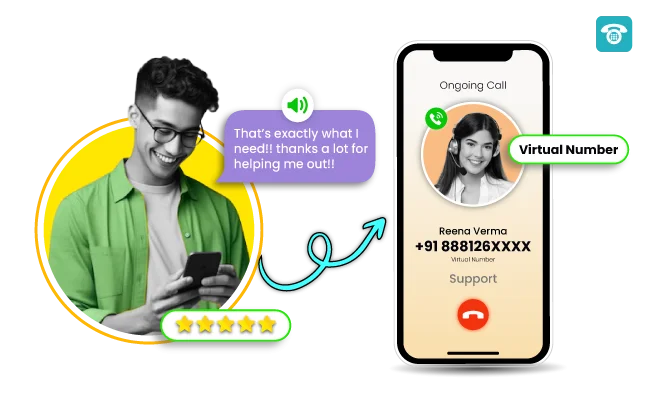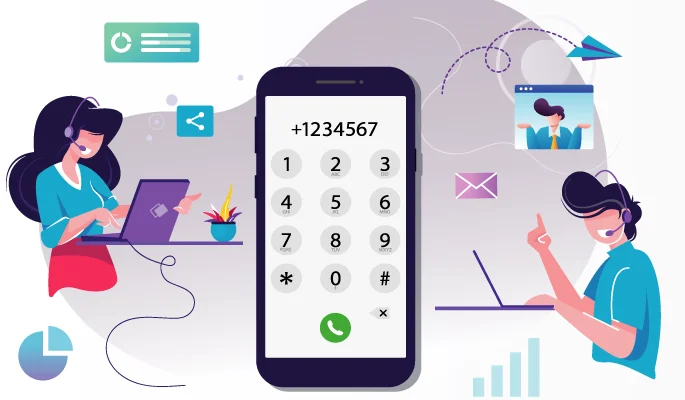
Virtual numbers have revolutionized how we communicate, but many users wonder about the legal implications of using these services. While virtual numbers are completely legal in most jurisdictions, understanding the regulatory landscape and your responsibilities as a user can help you make informed decisions and avoid potential complications.
The confusion often stems from the fact that virtual numbers operate differently from traditional phone services. Unlike conventional phone lines tied to specific addresses and identities, virtual numbers exist in digital space and can be used across borders. This flexibility, while beneficial, creates questions about jurisdiction, regulation, and acceptable use.
Understanding Virtual Number Legality Worldwide
In the United States, virtual numbers fall under telecommunications regulations managed by the Federal Communications Commission (FCC). The technology itself is perfectly legal, and millions of businesses and individuals use virtual numbers daily for legitimate purposes. The FCC treats virtual numbers similarly to traditional phone services, meaning they're subject to the same basic regulations regarding harassment, fraud, and misuse.
European Union countries have embraced virtual number technology, with regulations varying slightly between member states. The General Data Protection Regulation (GDPR) affects how virtual number providers handle user data, but it doesn't restrict the use of virtual numbers themselves. Most EU countries recognize virtual numbers as legitimate telecommunications tools, especially for business applications.
In Asia-Pacific regions, attitudes toward virtual numbers vary more significantly. Countries like Japan, South Korea, and Australia have well-established frameworks that accommodate virtual number services. However, some countries maintain stricter controls over telecommunications services, which can affect how virtual numbers are deployed and used.
The key distinction across all jurisdictions is between legitimate use and misuse. Virtual numbers themselves aren't illegal, but using them for fraudulent activities, harassment, or circumventing legitimate security measures can create legal problems regardless of the technology involved.
Common Legal Concerns and Misconceptions
One persistent myth is that using virtual numbers for privacy automatically makes you suspicious in the eyes of the law. This couldn't be further from the truth. Privacy is a fundamental right in most democratic societies, and using legal tools to protect your privacy is not only acceptable but often encouraged by privacy advocates and legal experts.

Another misconception involves business use of virtual numbers. Some entrepreneurs worry that using virtual numbers might affect their business's legal standing or credibility. In reality, countless legitimate businesses use virtual numbers for customer service, marketing campaigns, and international expansion. The legal system recognizes these as standard business tools.
Identity verification presents another area of confusion. While some services require identity verification for virtual number registration, this is typically a business policy rather than a legal requirement. The verification requirements often depend on the intended use case and the provider's risk management policies rather than legal mandates.
Tax implications sometimes concern business users, particularly those operating across international borders. The good news is that using virtual numbers doesn't inherently create tax obligations in foreign jurisdictions. Your tax responsibilities are determined by your business activities and physical presence, not by the phone numbers you use for communication.
Regulatory Compliance for Different Use Cases
Business applications of virtual numbers face the most comprehensive regulatory frameworks. Companies using virtual numbers for customer communications must comply with telemarketing regulations, data protection laws, and industry-specific requirements. For instance, healthcare organizations using virtual numbers must ensure HIPAA compliance, while financial services companies must meet banking regulations.
Marketing and advertising uses require particular attention to anti-spam legislation. The CAN-SPAM Act in the United States, similar legislation in other countries, and platform-specific policies all affect how businesses can use virtual numbers for promotional activities. The key is obtaining proper consent and providing clear opt-out mechanisms.
Personal use of virtual numbers faces fewer regulatory restrictions, but users should still be aware of platform terms of service and local laws regarding privacy and communication. Most personal use cases fall well within legal boundaries, especially when used for legitimate privacy protection or convenience purposes.
International communication through virtual numbers operates in a complex regulatory environment. While the technology enables seamless cross-border communication, users should be aware that different countries may have varying rules about international communications, data storage, and privacy protection.
Privacy Rights and Legal Protections
Your right to privacy extends to your choice of communication methods, including virtual numbers. Courts in various jurisdictions have consistently upheld individuals' rights to use privacy-protecting technologies, provided they're not used to facilitate illegal activities.
Law enforcement agencies can access virtual number communications through proper legal channels, just as they can with traditional phone services. However, the process may be more complex due to the international nature of many virtual number providers and varying data retention policies.
Data protection laws increasingly recognize the importance of privacy-enhancing technologies. The European Union's GDPR explicitly acknowledges privacy by design principles, which can include using services like virtual numbers. California's Consumer Privacy Act (CCPA) and similar legislation worldwide support consumers' rights to control their personal information.
However, these protections come with responsibilities. Users must ensure they're not using virtual numbers to violate others' rights or engage in illegal activities. The legal protection for privacy tools doesn't extend to their misuse.
Emerging Legal Frameworks

As virtual number technology evolves, so does the regulatory landscape. Governments worldwide are developing new frameworks to address digital communication technologies while balancing innovation, security, and consumer protection.
The European Union is working on the Digital Services Act and Digital Markets Act, which will affect how digital communication platforms operate. These regulations focus on transparency, accountability, and user protection rather than restricting the technology itself.
In the United States, state-level privacy legislation continues to evolve, with several states following California's lead in strengthening consumer privacy rights. These laws generally support the use of privacy-enhancing technologies like virtual numbers while establishing clearer guidelines for data handling and user consent.
Emerging markets are also developing their regulatory approaches. Countries that previously had restrictive telecommunications policies are recognizing the economic benefits of flexible communication technologies and adapting their legal frameworks accordingly.
Best Practices for Legal Compliance
Staying on the right side of the law while using virtual numbers isn't complicated, but it does require awareness and responsible use. Always use virtual numbers for legitimate purposes and respect the terms of service of both your virtual number provider and any platforms where you use these numbers.
Keep records of your virtual number usage, especially for business applications. Documentation can be valuable if questions arise about your communication practices or if you need to demonstrate compliance with relevant regulations.
Choose reputable virtual number providers who prioritize legal compliance and user protection. Services like BODE IM, which offers virtual numbers from over 197 countries while maintaining transparent policies and innovative accessibility features, demonstrate the industry's movement toward responsible service provision.
Be transparent about your use of virtual numbers when required. While you have no obligation to disclose your use of privacy tools in most personal situations, business applications may require disclosure for compliance or contractual reasons.
Future Legal Considerations
The legal landscape surrounding virtual numbers will continue evolving as technology advances and lawmakers gain better understanding of digital communication tools. Users should stay informed about changes in relevant legislation and adjust their practices accordingly.
Cross-border data transfer regulations will likely become more standardized, potentially simplifying the legal framework for international virtual number services. This standardization could make compliance easier while maintaining strong privacy protections.
Artificial intelligence and automated communication systems present new legal questions that may affect virtual number regulation. As these technologies integrate with virtual number services, new legal frameworks may emerge to address automated communications and AI-driven interactions.
The trend toward stronger privacy rights and user control over personal data suggests that virtual numbers will become even more legally protected and socially accepted. Rather than facing increased restrictions, users are likely to see enhanced legal protections for privacy-enhancing communication tools.
Understanding the legal aspects of virtual numbers empowers you to use these powerful tools confidently and responsibly. By staying informed and following best practices, you can enjoy the benefits of virtual numbers while maintaining full compliance with applicable laws and regulations.
Learn more about virtual number applications and compliance:
Related Articles




